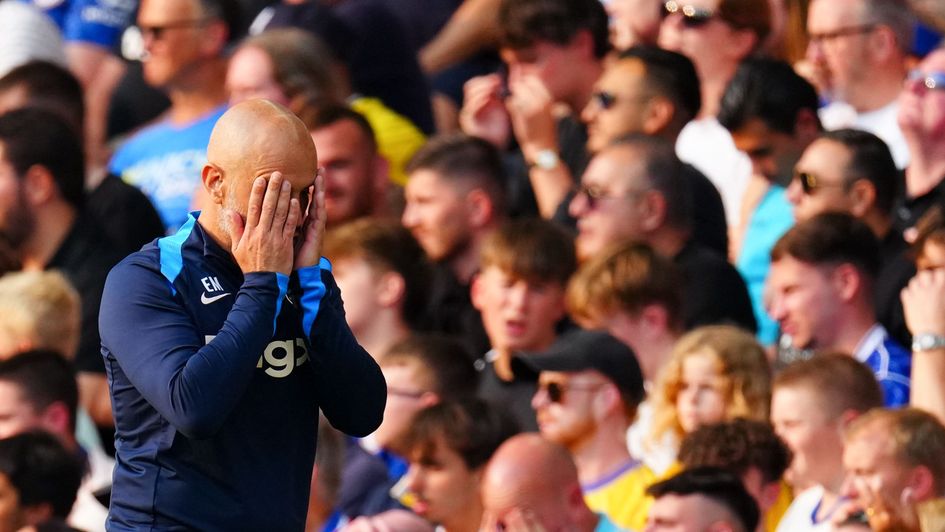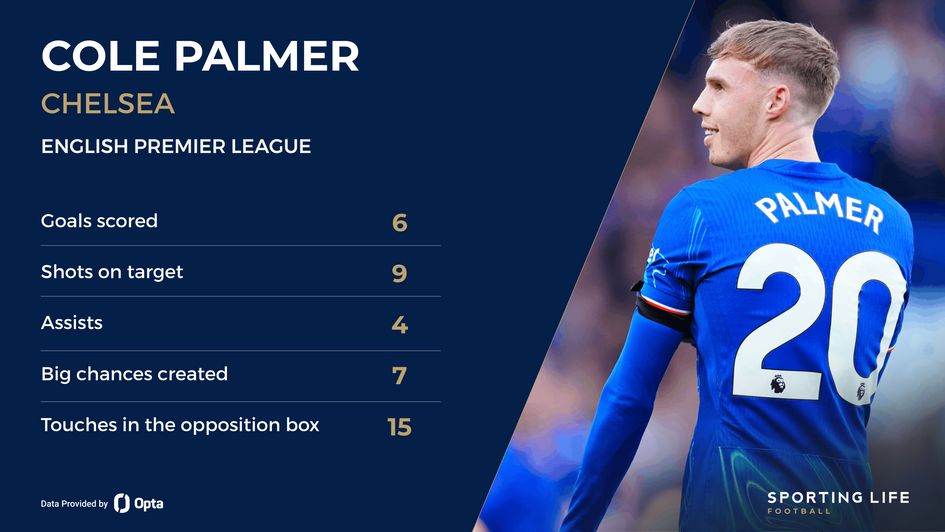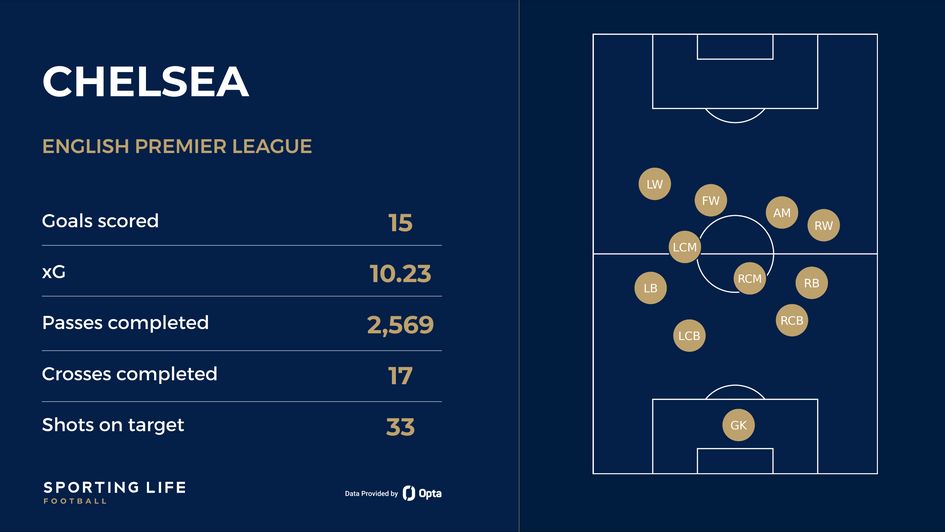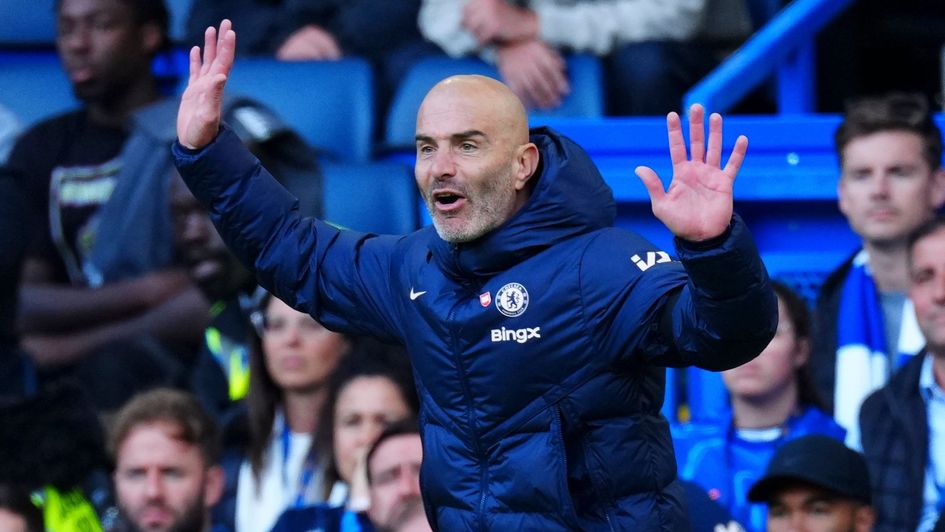Composing sweeping narratives from a tiny cluster of early matches is universally acknowledged to be both stupid and irresistible.
- Published before Chelsea's 4-2 win over Gent in the Conference League on Thursday
What else is there to do besides assume the biases and anomalies of these first few weeks will somehow remain applicable throughout an entire nine-month season? We overthink because we must, because our frenzied consumption of the sport demands it of us, but if we are going to draw conclusions from a small sample size then we can at least go about it with eyes wide open.
That means recognising scrutiny of points accrued isn’t enough and, more counter-intuitively, neither is scrutinising a team’s performances. Not in isolation, at least, because the real danger of early-season analysis isn’t misreading how a team is playing but not yet knowing the quality of the opposition.
This is the context we often miss - and the context being particularly overlooked when it comes to appraising Enzo Maresca’s start to life in the Premier League.

Losing 2-0 to Manchester City didn’t look particularly bad at the time, but they were Rodri-less then and they were Rodri-less when Newcastle United pulled off a 1-1 draw last weekend. The 6-2 and 3-0 wins over Wolves and West Ham dazzled us, but Gary O’Neil’s side are currently rock bottom, on one point, while Julen Lopetegui already seems close to crisis point.
Even the 4-2 win against Brighton last weekend has the major caveat of a genuinely woeful tactical display from the visitors, who deployed a high line but applied no pressure to the ball. Brighton are a mystery, their start too mixed to yet know whether victory against them at Stamford Bridge is a good result or an entirely expected one.
That only leaves a 1-0 win at Bournemouth, when an 86th-minute Christopher Nkunku goal was just enough to beat a team who were thrashed by Liverpool seven days later, and an obviously disappointing 1-1 draw with Crystal Palace.
Chelsea might be good or they might be lucky. More confusing still is the tactical setup we have seen in these games, because at this juncture we don’t know whether the riotous fast-breaking Chelsea we are watching is an accident or a cunning adaptation from a manager historically associated with its polar opposite.
Leicester City were often dull to watch. As a Pep Guardiola disciple Maresca’s desire for total control led to slow possession football, drawing parallels with the manager’s other great love, chess. There were fears his strategy would be too flat to excite an anxious Stamford Bridge crowd and too intricate for the impatient Todd Boehly.
That seems laughable after 15 goals in six Premier League games and after the pandemonium of their 6-2 and 4-2 wins over Wolves and Brighton in particular. But here again we return to the problem of sample size: ten of their 15 goals (66%) came in those two games, as did eight of Cole Palmer’s 10 goal involvements (80%).

Maresca was critical of his team for periods of both these matches, going as far as to say he was happier with the goalless second half against Brighton than the four-goal first and that he would have preferred greater control as in the West Ham win.
But they won’t be able to repeat the West Ham performance very often simply because they will very rarely face an opponent in such complete disarray. Lopetegui got his setup completely wrong in that game and a passive, shapeless West Ham were easily controlled.
Still, those comments are a decent hint that Maresca is not tweaking his methods to suit the particular skillset of Palmer and Nicolas Jackson, of Noni Madueke and Jadon Sancho, but rather finding his team swept up in the madness of chaotic opponents.
That his young attackers revel in open space means they are easily tempted away from the chess, and although their indiscipline is working for now it could be an issue later on if and when the manager begins to curb the instincts of his more explosive players.

If and when: this is the problem. Chelsea are no less an enigma now than they were last season. We simply do not know if the Palmer-Jackson combinations and the wild free-flowing football is part of the plan.
What we do know is that fans and pundits will keep drawing conclusions from basic information and incomplete data, which means there is now an expectation among supports that the new era will be fun to watch.
Here, too, is danger. If Maresca rein things in only to suffer from growing pains fans will have this unsustainable early standard as comparison. There is now a height from which to fall, a promise that may – or may not - be kept.
More from Sporting Life
- Fixtures, results and live scores
- Expert xG analysis and features
- Transfer news and done deals
- Football and other sports tips
- Download our free iOS and Android app
- Podcasts and video content
Safer gambling
We are committed in our support of safer gambling. Recommended bets are advised to over-18s and we strongly encourage readers to wager only what they can afford to lose.
If you are concerned about your gambling, please call the National Gambling Helpline / GamCare on 0808 8020 133.
Further support and information can be found at begambleaware.org and gamblingtherapy.org.









